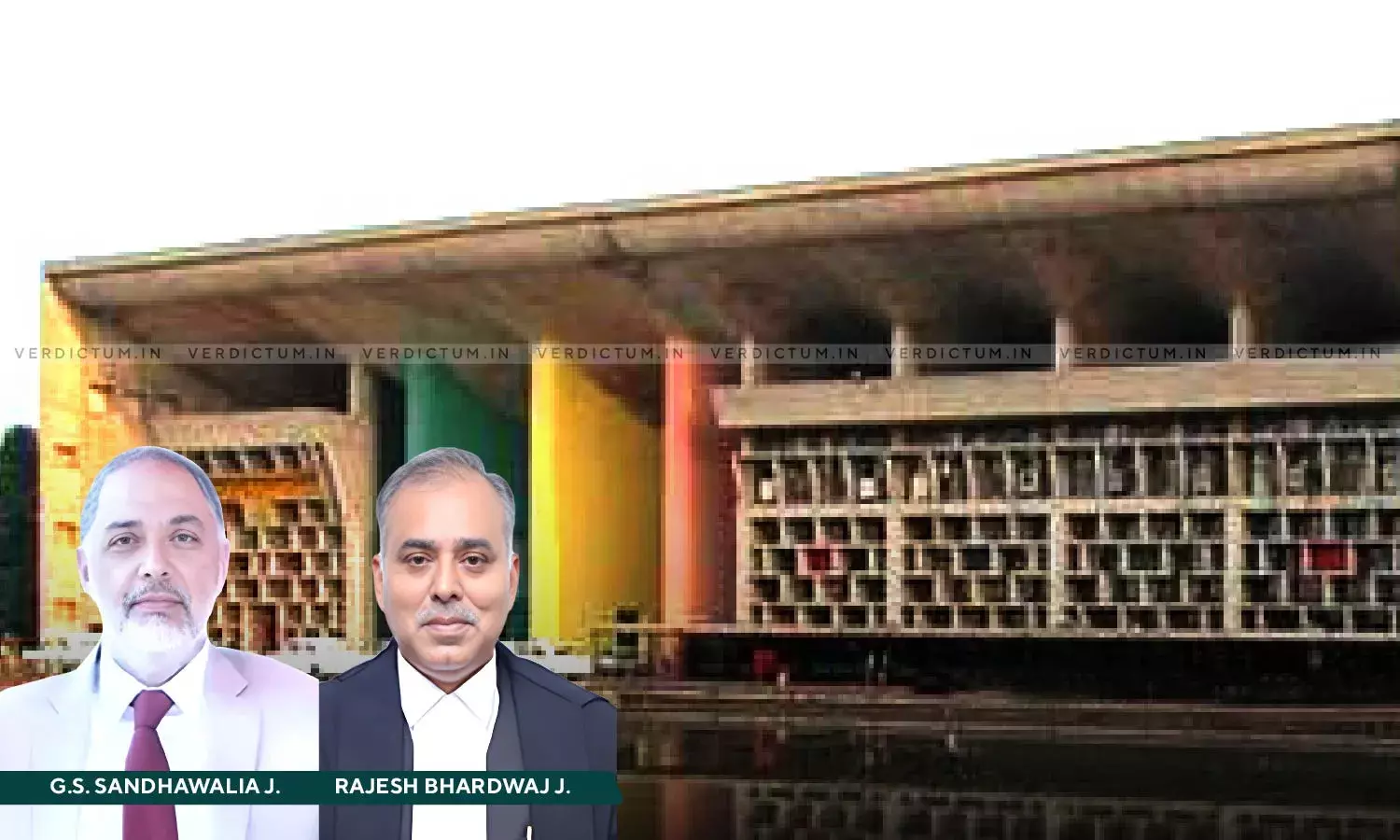Punjab & Haryana High Court Grants Bail To Youth Accused In 2019 Tarn Taran Blast Case With Alleged Khalistani Links

The Punjab and Haryana High Court has granted bail to one of the accused in the 2019 Tarn Taran blast case. The bail applicant had been accused by the prosecution of being a "radicalized pro-Khalistani" youth and a member of a "terrorist group."
A Division Bench of Justice G.S. Sandhawalia and Justice Rajesh Bhardwaj approved his release on bail despite his previous bail pleas being rejected by a special court and another bench of the High Court in 2020 observing that that there was insufficient credible evidence connecting the applicant to the most serious charge of being a member of a terrorist gang under Section 20 of the Unlawful Activities (Prevention) Act (UAPA). Other charges against him carried jail sentences ranging from 3 to 7 years.
The case revolved around a powerful explosion that occurred in a Tarn Taran village on September 4, 2019, resulting in two deaths and several severe injuries. According to the prosecution, the applicant and other accused individuals formed a terrorist gang under the leadership of Bikramjit Singh. Applicant was alleged to have met with co-accused from 2013-2014 and was initiated into radicalization by Bikramjit Singh. He was accused of being inclined toward pro-Khalistani ideology, sharing related posts on social media, and conspiring to create instability in Punjab's law and order situation.
Advocate Sumit Kalyan appeared for the Appellant and Advocate Sukhdeep Singh Sandhu appeared for the Respondent.
Appellant’s counsel argued that his Facebook profile merely showed his religious views as a Sikh who believed in Khalistan and did not indicate support for the Khalistan movement or his involvement in a terrorist outfit.
The High Court emphasized that he had already spent almost four years in detention since May 15, 2019. With only 14 out of 120 witnesses examined and no incriminating evidence recovered from him, the Court ruled that he was entitled to bail. The Court said, “It is pertinent to notice that under Section 153A IPC, the maximum punishment is only 3 years whereas under Section 13 of the 1967 Act, it is upto 7 years. It is only under Section 20 of the UAPA, the sentencing may extend to imprisonment for life. The appellant having undergone almost 4 years of detention cannot be expected to continue in detention merely on account of the fact that the offences are serious as per the prosecution version.”
Furthermore, the High Court disagreed with the special court's opinion that only a Constitutional Court could grant bail in a UAPA case. The bench pointed out that the trial had made little progress and that Section 43-C of the UAPA allowed for the application of the provisions of the Criminal Procedure Code (CrPC) regarding bail.
“Admittedly, the trial is creeping along and there has been no substantial progress and therefore, it was also not justified in holding that only the Constitutional Courts would have the power to grant bail as Section 43-C of the UAPA provides for application of the provisions of Cr.P.C.” the judgment added.
The High Court also noted that there was no evidence to suggest his involvement in other cases or a criminal background. The appeal was allowed and the Court entitled the appellant for the benefit of regular bail.
Cause Title: Chandeep Singh v. National Investigation Agency, [2023:PHHC:118039-DB]
Click here to read/download Judgment


